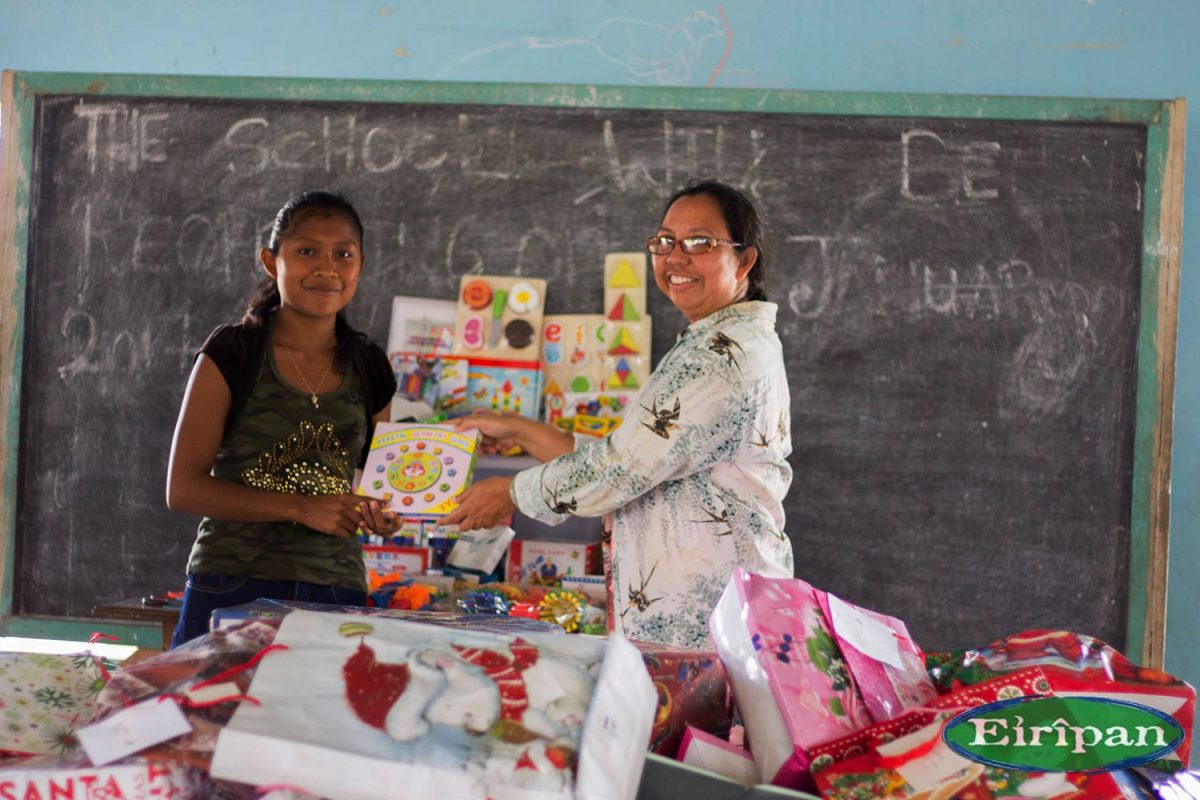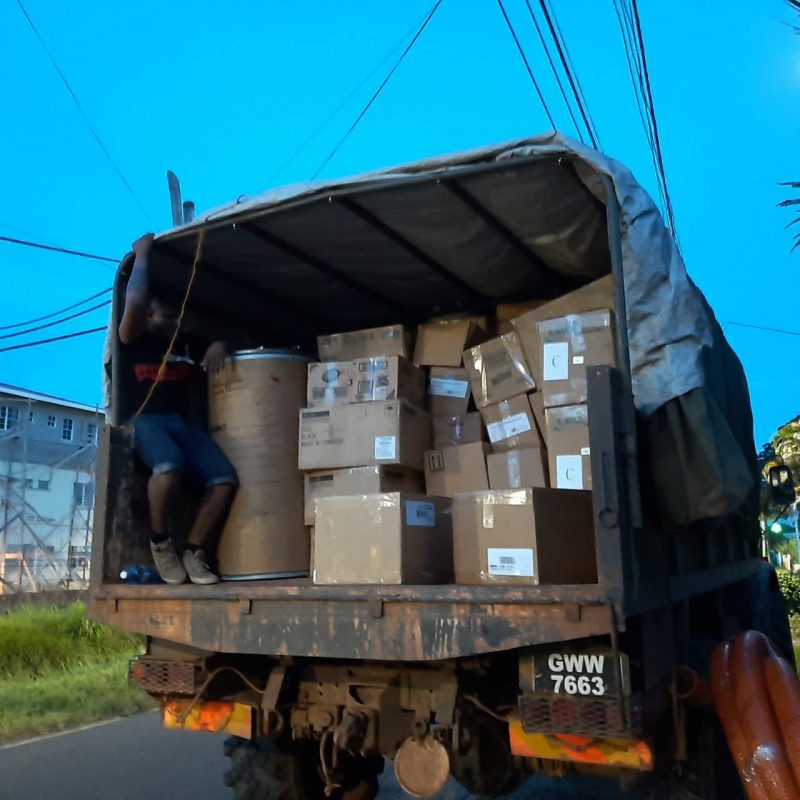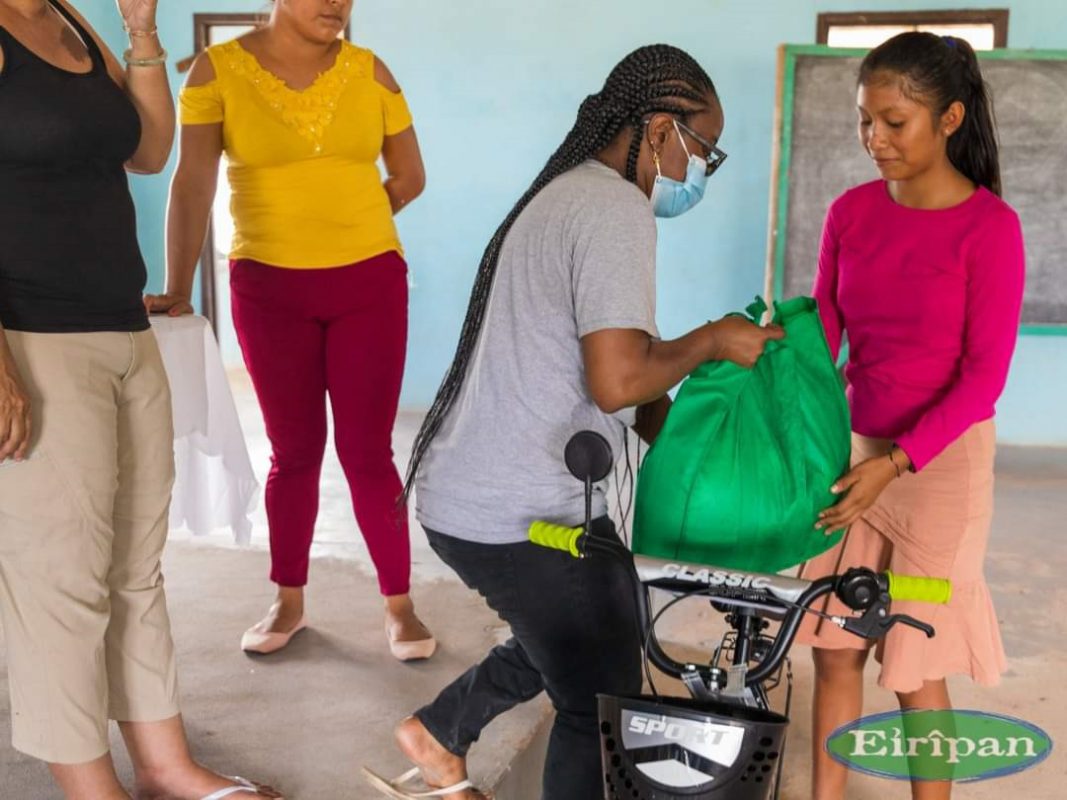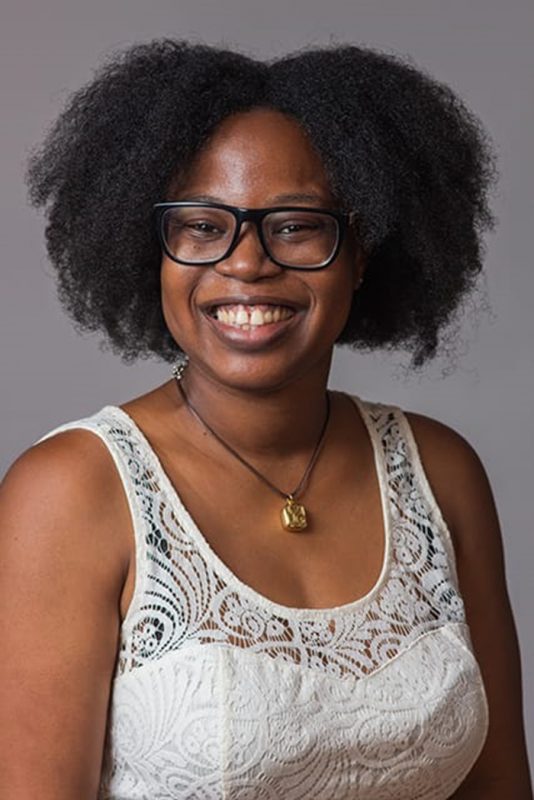By Rae Wiltshire
There are colourful fairy lights on store buildings, huge Christmas trees in malls, people walking with shopping bags, and drivers shouting impatiently at the long traffic lines. This is Christmas in Georgetown and even though many complain about the crowds, the hustle and bustle can be enjoyable.
It is a season to celebrate traditions and connect with family and friends. The act of giving presents is used to express love and appreciation for the people we care about.
Christmas in the hinterland is vastly different from the hubbub of Georgetown. The villages do not have a lot of traffic; if there are two vehicles in a village, then that is considered a lot. Finding transportation is therefore challenging. Christmas in these landscapes is experienced differently but the sentiment of sharing connects.
Eírîpan is a non-governmental organisation that has been giving to indigenous children in the Rupununi Savannahs for the past decade. Eírîpan comes from the Macushi language and it means to share. “The smiles, the smiles when you call their names and they come up and collect [gifts] because sometimes the presents [are] bigger than the children,” said Neketa Forde, the current president of the organisation.
She has been with Eírîpan since 2011, when one of its founding members, Melanie McTurk, asked her to assist. At that point, Forde was looking for direction in her life; McTurk provided it and children are benefitting from her volunteerism.
Eírîpan’s main goal is to provide practical gifts that children can use to improve their lives and literacy. “We believe that in order for the literacy rate to rise in the Rupununi, we need to reward children for going to school,” Forde said.
Eírîpan partners with the village council, teachers and community workers and prepares a list of names to distribute gifts to children. The list is called Makonaima’s Angels; a tribute to the indigenous belief that Makonaima is a great spirit capable of superhuman feats.
The list is given to businesses in Georgetown and the organisation accepts donations in cash or in-kind. Each child is catered for and utility bags containing plates, cups, spoons, school supplies and personal toiletries are also handed out. “We try to provide as many things as possible that we know will be useful to them…,” Forde noted.
As reciprocation when Forde visits villages she “learned to ride a horse, swim in a waterfall properly, climb the foothills of a mountain and also hold my camera properly when on a moving vehicle.” Forde laughed and explained that the project has kept her grounded, while giving her a deep appreciation for the cultural exchange that occurs with the indigenous community.
“I am thankful for everything I have because I see people surviving on less than what I have and I am always amazed,” she said. “It has taught me a lot about other cultures because [in] some of these villages they speak more than three languages, their own, English, Portuguese and in some instances Spanish or another indigenous language.”
The project has also forced Forde to collaborate with others; this was difficult because she usually prefers to be a jack of all trades. But communication and collaboration are critical for the success of such a project and this has deepened her networking skills.
This skill has been especially useful when engaging the corporate community for sponsorship of children who have excelled during the school year. This part of the project is called the Good Job Award and it is given to the top performing students at the nursery and primary level, who are leaving to attend another school after graduation. The nursery and primary level awardees receive a bicycle and a tablet respectively. The tablet comes with a car charger since everyone does not have electricity in the villages. At present, Eírîpan is in need of three bicycles to complete this project.
The book drive is another important programme. “It is difficult to find classroom materials so we try to build as many libraries as we can and we would get bus services in town to take up the books. We don’t just take textbooks, we take up other reading materials too. We find and collect and we donate,” Forde said. This is crucial to developing the literacy of the children.
Eírîpan’s final project is the classroom enhancement kit. “We put together learning aids to assist teachers with teaching,” Forde explained. For nursery we get developmental toys and hard-to-find stationery like markers and cardboard. It is hard to get these things because transportation is an issue.”
Transporting gifts to the villages is one of the main expenses and Forde explained that two-thirds of Eírîpan’s budget goes towards fuel; financial support is still needed to make this project a success. The organisation is currently collaborating with artists and will host an auction on December 21st at The Garden Room, 23 Jamoon Drive, Meadowbrook Gardens from 7 pm – 11 pm. Twenty percent of the proceeds will go towards the children of the Rupununi.
Eírîpan’s support of the Rupununi has exceeded expectations and the work of keeping tabs on children in school reaped a bigger reward than originally intended. “Oh, so Melanie would always like to tell the story of Simonie not having a school until Eírîpan went to request a list of the children living in Simonie,” Forde said. “With that Christmas list, the village council petitioned for a school to be built because they had enough children and the school was justifiable.”
This year, the organisation is expanding the villages that will receive gifts. North Rupununi is the usual destination; this year the giving moves further to the south and includes the villages of Katoonarib, Quarrie and Rupunau. The villagers had written and asked Eírîpan to visit.
The support in Georgetown has also been good. “Throughout the years we could not do it if not for donors from town. Farfan and Mendes, Beharry, SOL and DDL are some of the companies. It is usually employees who would… sponsor presents for these kids,” Forde said. Persons who are willing to donate can message Eírîpan on Facebook (https://www.facebook.com/eiripan) and Instagram (https://www.instagram.com/theofficialeiripan/) or contact Neketa via email at [email protected].




